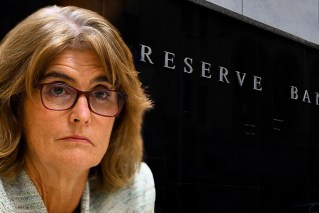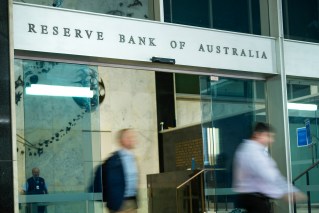‘It’s irresponsible’: Ex-Liberal leader savages government over lending reforms


The government's proposed changes to lending laws have come under scrutiny from Dr John Hewson. Photo: TND
Former Liberal Party leader John Hewson has admonished the federal government for proposing to ease responsible lending laws, saying the move could “stoke a debt monster”.
Despite interest in new home loans soaring to levels not seen since the GFC, the federal government is planning to make it easier for banks to lend in the name of boosting spending in the economy.
But with household debt already at record highs (roughly 200 per cent of household disposable income and 125 per cent of GDP) Dr Hewson said the reforms would produce a “very messy set of financial circumstances”.
“I think the basic premise is wrong,” Dr Hewson told The New Daily.
“Lending might stimulate some short-term spending, but in the end it has to be serviced – you are stoking a debt monster.”

Former Liberal leader John Hewson says changes to responsible lending could provoke a “debt monster”. Photo: AAP
Dr Hewson, a professor at the Australian National University’s Crawford School of Public Policy, noted the Hayne royal commission uncovered a “culture of greed” that encouraged banks to knowingly overextend their customers through “fudging lending requirements and so on”.
And if the banks are given greater licence to seek loans in a recession when mortgage deferrals and stimulus will soon end, more vulnerable families will unwittingly find themselves in financial stress, he said.
“It’s just a short-term fix to make the recovery look better than it really is. It kicks the problem down the road and many people have already got a level of debt they can’t afford,” Dr Hewson said.
“It doesn’t make sense. [The government] is banking on hope.”
Instead of lending reforms, Dr Hewson said a social housing drive, acting on climate change and reforming the education and health sectors would have far greater stimulatory effects – and fewer consequences.
Reforms would have real-world consequences
Australia’s responsible lending legislation was introduced by the Rudd government in the fallout of the GFC to counter predatory lending practices that crept into the financial sector.
And last week, Commonwealth Bank was fined $150,000 for breaching the laws – which fall under the National Consumer Credit Protection Act – after extending credit to a problem gambler despite his pleas to freeze his credit limit.
Lauren, who spoke anonymously because of the guilt she feels over her former mountain of debt, credits the laws with giving her a “second chance” in life.
She entered a debt cycle in her early 20s and was “drowning in interest” by 30, after banks convinced her to borrow what she could not afford.
Eventually, Lauren found herself with $55,000 in personal debt.
Tweet from @NickMcKim
But it was not due to overzealous shopping. As a sole trader without a fixed income, she needed access to credit when her cash flow ran dry.
“I purchased some flights at one stage that were worth about $2000 and was then offered an $11,000 credit card as part of a buy-now-pay-later incentive,” Lauren told The New Daily.
“I never submitted one payslip and I never had a reference check, and my income and expenses were never verified.”
After entering “a really dark place” because of her mounting debt, she eventually settled her debts with her bank through the consumer protections the laws offer, and now has a stable job and pays taxes.
“I don’t know where I would be today otherwise. I may have been stuck in a cycle of poverty,” Lauren said.
“I would love to sit down with Josh Frydenberg and have him try and explain how any of this makes sense.”
Repealing responsible lending a ‘debt disaster’
Consumer Action Law Centre CEO Gerard Brody told The New Daily that repealing the responsible lending laws would ultimately lead to a “debt disaster” with more households buckling under insurmountable debt.
Mr Brody said the changes effectively strip rights from consumers that keep the banks accountable when they have committed wrongdoing, such as encouraging a customer to overextend despite knowing their borrowing capacity.
“It’s going to prolong the downturn because households who are more overindebted are going to be at greater financial risk and not get on top of things and help the economy get back to normal,” Mr Brody said.
“People at the margins are the ones who will be pushed into borrowing because they’ve lost their jobs or hours worked.
“And particularly as income support is wound back, people will turn to credit because they need it to survive.”








